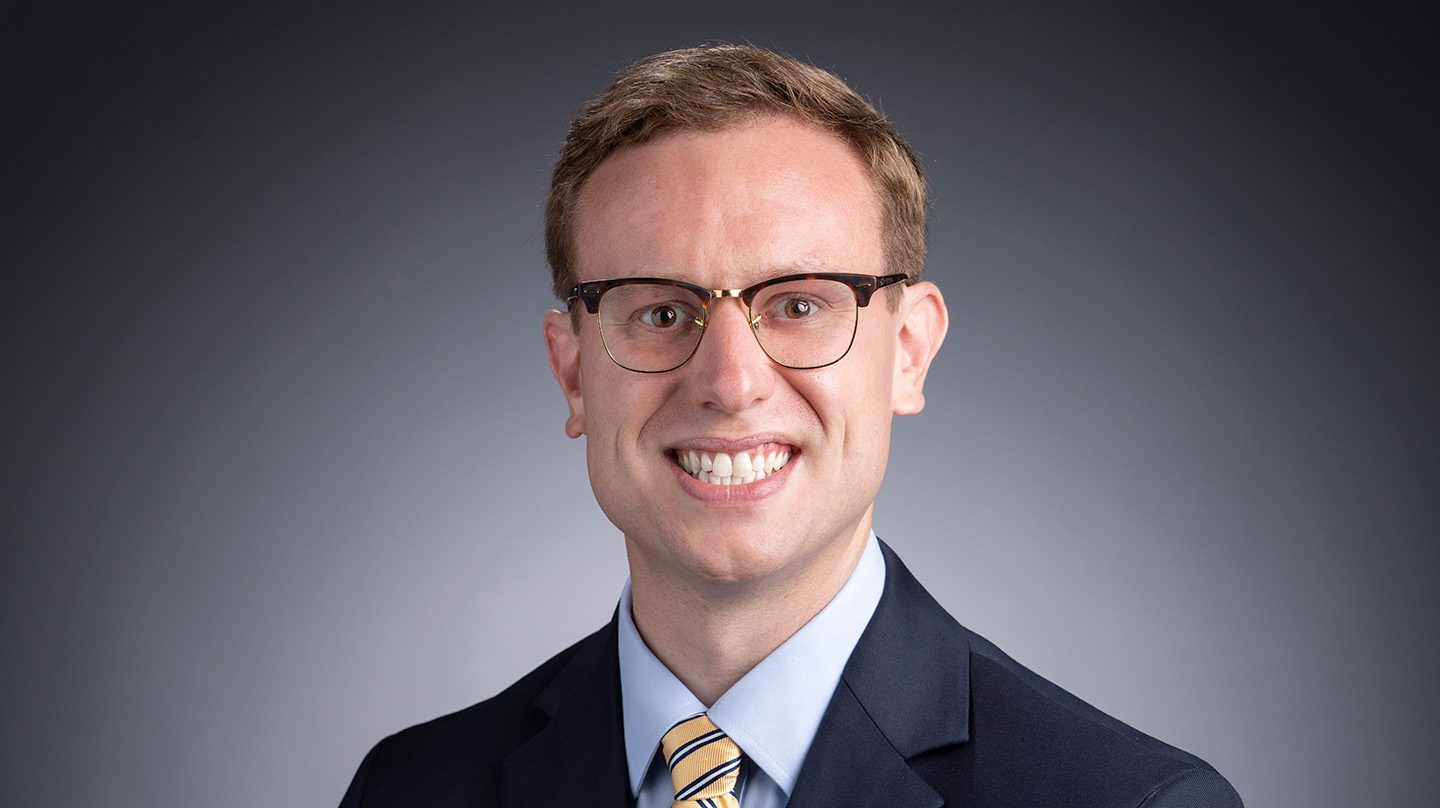Press Release
Johns Hopkins APL’s Burke Selected for Prestigious Frontiers of Engineering Symposium
Paul Burke, a computational physicist and aerospace engineer at the Johns Hopkins Applied Physics Laboratory (APL) in Laurel, Maryland, has been selected to participate in the 2024 National Academies Frontiers of Engineering Symposium. Sponsored by The Grainger Foundation, the event will bring together 76 of the nation’s most promising early-career engineers to discuss pioneering research and technical advancements.
Since its inception in 1995, the symposium has been a hallmark event, with engineers who are recognized as emerging leaders in their disciplines invited to participate. The attendees are chosen through a rigorous selection process that involves nominations and applications.
Set for Sept. 11-14 at the National Academies’ Beckman Center in Irvine, California, the symposium will explore topics such as digital twin technology, human health and artificial intelligence, advanced materials and the future of computing. Of those, Burke said he is particularly excited to discuss digital twins, an area closely related to his work in APL’s Space Exploration Sector.
“A lot of my projects involve simulation, physics-based modeling and high-performance computing,” Burke said. “I am hopeful that physics-based modeling will continue to advance in fidelity, speed and complexity, opening up new areas for advancement in space exploration, health care and fundamental research.”
One of Burke’s projects is the development of an aortic digital twin. Collaborating with researchers from the Johns Hopkins School of Medicine, he is studying blood flow and aortic shape in pediatric patients with connective tissue disorders. This project is still in its early stages, with multiple grant proposals under consideration from organizations such as the National Institutes of Health and the American Heart Association.
Burke is also working on computational models to optimize the use of resources on the lunar surface, essential for long-term human and robotic exploration on the Moon. Additionally, he is modeling laser ablation processes to understand the fundamental physics during pulsed laser ablation. This process has practical applications in advanced manufacturing, such as precision cutting and material processing. It is also used in Department of Defense applications that require precise and efficient material-removal techniques. These models and simulations are crucial for improving technology in both commercial and defense sectors.
“I am excited to learn something new during every discussion at the symposium,” he said. “Working on a team full of diverse thoughts, including viewpoints which counter your own, can be one of the most rewarding experiences.” He said he also sees the symposium as an opportunity to develop meaningful relationships with other engineers, potentially leading to collaborations that will broaden APL’s impact.
Burke joined APL in 2021, after earning a doctorate in aerospace engineering from Texas A&M University. He also holds bachelor’s degrees in aerospace engineering and materials science and engineering from the University of Virginia.
“Paul’s innovative spirit, thirst for knowledge and technical drive are a perfect fit for the National Academies Frontiers of Engineering Symposium,” said Bobby Braun, head of APL’s Space Exploration Sector. “Having attended this symposium over 20 years ago myself, I trust that Paul will make lifelong connections that expand his network and impact for years to come.”
